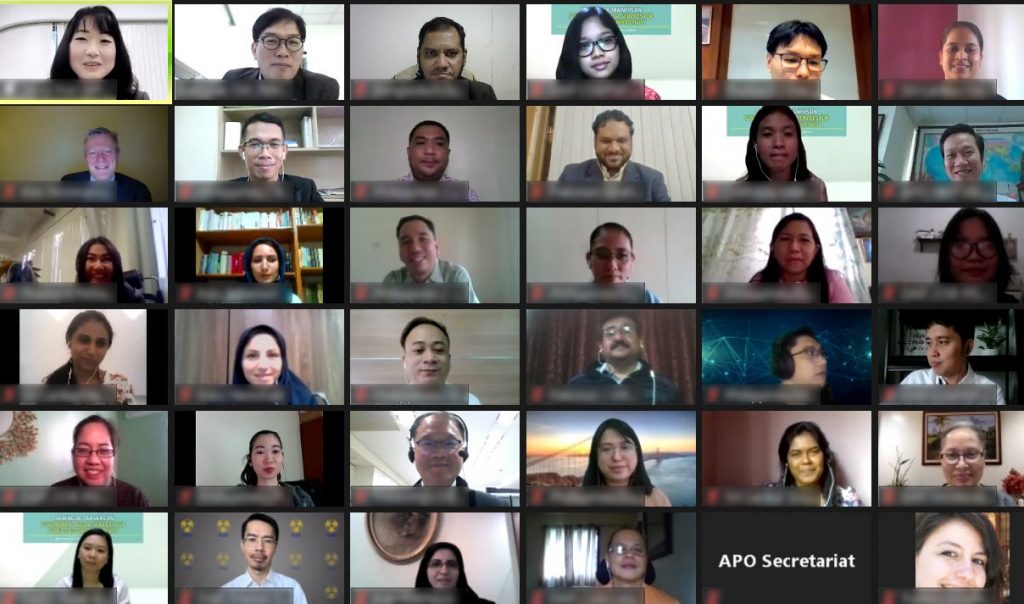
Select Page

Recent advances in digital public services have become indispensable, especially during the COVID-19 pandemic. Service delivery must be contact-free, handy, and ubiquitous for users’ convenience. Accumulated online data are transparently managed and analyzed for improved public service while making societies more future-ready. In this context, the Development Academy of the Philippines (DAP) and APO Secretariat held a virtual Training of Trainers on Government Digital Services for Public-sector Productivity, 25–27 November 2020. The course introduced e-government services and discussed their applications as well as examined the theoretical and conceptual frameworks of digital government and coverage of online public services for businesses and individuals.
DAP President and CEO Atty. Engelbert C. Caronan, Jr. welcomed 26 participants from 10 APO member countries. Two APO-assigned resource persons were invited from Denmark and the ROK to share best practices of e-government development and actions at each stage of adoption for integrating digital public services. Three local resource persons introduced the latest advances in public online education and city management and promotion through mobile apps in the Philippines. Other topics covered were the ROK’s e-government establishment process since the 1990s, digital government for citizen services in Denmark, e-government in the post-COVID-19 period, and inclusive digital service delivery.
Participants from IR Iran, the Philippines, and Vietnam presented examples of digitalized public services from their countries and exchanged questions and answers, adding lively, interactive elements to the sessions. The course also included a group exercise where participants were divided into virtual teams and each drafted a mitigation plan to resolve challenging current issues through practical solutions. Prof. Kim Normann Andersen, resource person from Denmark, communicated with each team to discuss the assignment topics.
In summing up her impression of the course, a participant from Sri Lanka stated, “It was extremely helpful and informative, and the flow of the sessions was well organized. The course provided a pleasant atmosphere to learn new things.” Others expressed the hope for follow-up training and were inspired by the efforts for digital transformation and e-government service provision in APO members.